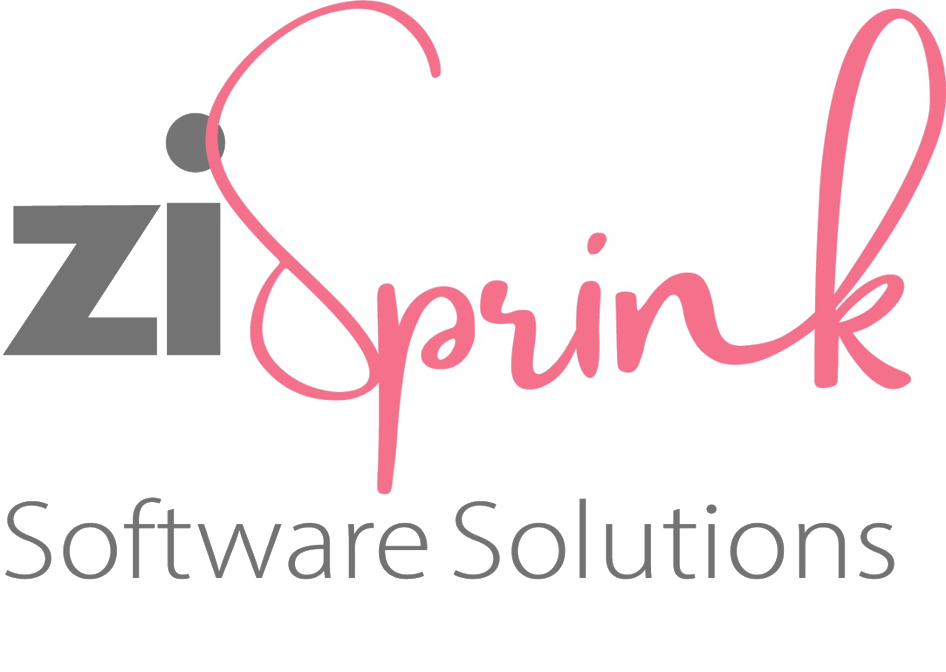BLOG
- Home
- Blog
Explore the World of Tech
UAE E-Invoicing Alert: Avoid Fines Up to Dh5,000!
In the UAE’s fast-paced business world, digital transformation is no longer optional. The government’s e-invoicing system (EIS) ensures transparency, efficiency, and compliance. Businesses that delay adopting it face significant fines.
📜 What’s New?
From December 2025, all businesses in the UAE must comply with the Electronic Invoicing System. This isn’t just about digital convenience — it’s a step toward a more transparent and efficient economy.
For businesses that fail to implement e-invoicing on time.
Each invoice or credit note not issued electronically.
If system errors are not reported to the authorities immediately.
For failing to update critical business data with service providers.
🎥 How E-Invoicing Works
🌐 Why Compliance Matters
Implementing e-invoicing isn’t just avoiding fines. It’s about building a smarter, more efficient business that thrives in a competitive digital economy. Embrace the change and lead the UAE’s financial digital revolution!
⚠️ Important Cyber & Privacy Alert for Everyone! 📱📸
Heads up! Two major digital safety issues are affecting people in the UAE:
Emirates NBD issues alert over WhatsApp Zero-Day voice call attack
Dubai: Banking customers in the UAE have been warned to be on high alert for a "zero-day" WhatsApp security breach that allows cybercriminals to compromise smartphones through a single voice call.
In an advisory issued by Emirates NBD, the UAE bank explained that the attack leverages an unidentified vulnerability, or "zero-day," to gain unauthorised access to devices. Unlike typical phishing scams, these attacks can be triggered by a single call from an unknown number—often requiring no interaction from the user to succeed.

Grok deepfakes: Protect Yourself from AI Image Misuse!

Dubai: The growing misuse of AI image tools has sparked global concern, reaching right into daily life in the UAE. After countries like Malaysia and Indonesia blocked Elon Musk’s Grok over sexualised deepfakes, experts warn that even a single clear photo can be twisted into fake and harmful content within seconds. Such manipulated images can spread faster than facts, damaging reputations, relationships, and trust.
In the UAE, experts highlight that these acts fall under Federal Decree-Law No. 34 of 2021, which criminalises digital blackmail and image manipulation. Parents are urged to share children’s photos only in private groups, avoiding details like school uniforms or locations. Wadeema’s Law also reinforces stronger privacy protection for minors — reminding everyone to be cautious, responsible, and respectful online.
2026: The UAE’s Digital Transformation Shifts from Vision to Real Outcomes
After a decade of bold vision statements and pilot programmes, 2026 marks the UAE’s turning point — when digital transformation will finally be judged by results, not rhetoric.
Industry leaders predict a decisive leap from strategy decks to scaled delivery, fuelled by unified data, artificial intelligence, and execution excellence across every sector.
From Planning to Performance
“The buzzword would be execution, more than planning and strategy — the speed and consistency of execution will determine success. Usage of AI needs to be tied to productivity and customer value.”
— Sanjay Raghunath, Chairman & Managing Director, Centena Group

That sentiment is echoed by Prem Anand Velumani, Associate Director, Strategic Alliances, Zoho Middle East & Africa, who says:
“The region must move beyond digital transformation slogans and focus instead on business redesign driven by measurable results.”
Both executives agree that 2026 will be the year of doing — when success depends not on digital ambition, but on how well organisations translate technology into tangible impact.
IT Upgrades: A Change in Operating Model
Raghunath warns that many firms have misunderstood digital transformation as an IT investment rather than a business reinvention.
“Too often, companies invest in ERPs and CRMs without redesigning decision-making rights, processes, and mindsets — which simply digitises inefficiencies.”
Velumani adds that fragmented systems, legacy infrastructure, and skills shortages have left many initiatives stuck in “pilot purgatory.”
Growing concerns around data privacy, infrastructure sovereignty, and AI governance are also prompting businesses to become more selective about their technology partners and platforms.
AI isn’t coming — it’s already here, and the UAE is leading the way.

Culture: The Hidden Engine of Change
Technology alone can’t transform an organisation — culture drives real progress. Risk aversion, centralised decisions, and founder dependency often slow growth. Success in 2026 will depend on empowered second-line leaders, agile teams, and data-driven decision-making that enables scale without losing control.
The Rise of Operational AI
Sectors like energy, maritime, logistics, and manufacturing will gain the most from AI that turns data into action. Predictive maintenance, Industrial IoT, robotics, and drones will cut downtime, improve safety, and streamline operations — while AI-powered forecasting will sharpen cost control and working capital.
The New Technology Stack for 2026
The next wave of digital growth will run on agentic AI, IoT, and unstructured data intelligence for real-time insights and automation. Tools like secure enterprise browsers and low-code platforms will help businesses move faster, safely, and with fewer technical constraints.
Execution Is the New Innovation
In 2026, success won’t come from strategy — but from execution at speed and scale. The UAE’s most advanced organisations will combine technology, unified data, and empowered people to deliver measurable results. Because in this new digital era, execution isn’t just part of innovation — it is innovation.
AI in the UAE: The Future Is Already Here
Artificial Intelligence isn’t the future in the UAE — it’s the present. From smart government systems to AI-powered workplaces, the country is redefining how people work, learn, and grow.
AI at Work
- 93% of UAE business leaders say AI will transform jobs within a year.
- 3 in 4 employees already use AI tools daily — boosting productivity and creativity.
- Many companies still struggle to scale projects and upskill staff fast enough.
“The UAE has one of the most ambitious AI agendas in the world.”
— Raoul Van Engelshoven, Kyndryl UAE
The New Reality
AI is helping businesses move faster and smarter — but it’s also changing what workers value most: security, stability, and learning. Firms that invest in skills, systems, and people will lead the UAE’s next big leap.
✨ AI isn’t coming — it’s already here, and the UAE is leading the way.
Automated BOQ Generation in Construction ERP | ziSprink
Imagine generating a complete, accurate Bill of Quantities (BOQ) in minutes instead of days. That’s the power of automated BOQ generation in modern construction ERP systems.
Traditionally, BOQ generation required engineers to manually extract quantities from drawings, cross-check them with specifications, and format them for tendering — a time-consuming and error-prone process. But with AI automation, this workflow transforms completely.
ziSprink’s AI-Powered BOQ Automation
ziSprink’s ERP leverages machine learning to read project data, identify materials, quantities, and work categories, and generate structured BOQs instantly. The outcome is a reliable BOQ ready for costing, tendering, or project execution — without manual data entry.
Benefits of Automated BOQ Generation
- Save Hundreds of Man-Hours: Contractors can complete BOQs in minutes instead of days.
- Increase Accuracy & Reduce Risk: AI eliminates human errors in calculations and entries.
- Consistency Across Projects: Standardized BOQs maintain quality and compliance.
- Faster Decision-Making: Teams can make data-backed decisions quickly.
By integrating BOQ generation into a single platform, ziSprink ERP eliminates fragmentation between estimation, procurement, and project control. Everything stays synchronized, from the first takeoff to final billing.
If your ERP can’t create BOQs automatically, it’s not truly modern.
Nearly Half of UAE Workforce Needs Upskilling as Gen AI Learning Surges
Nearly half of the UAE’s workforce will need upskilling by 2030, with Generative AI (Gen AI) driving this shift. Employees are rapidly enrolling in AI courses to stay competitive, while companies invest heavily in developing digital skills. Coursera’s Global CEO, Greg Hart, said UAE learners have recorded over 131,000 Gen AI course enrollments, more than double last year.
AI is reshaping the way people work — not by replacing jobs but by automating repetitive tasks and allowing employees to focus on higher-value responsibilities. “AI is transforming specific tasks rather than entire roles,” said Hart during his visit to the UAE for the Coursera Connect conference. This approach is helping organizations improve productivity and efficiency while empowering employees to use AI as an augmentation tool rather than a threat.
Industry leaders note that both public and private sectors in the UAE are leading the AI upskilling movement. Companies are focusing on empowering their workforce instead of reducing it, aligning with the UAE AI Strategy 2031 to build a future-ready economy. As the World Economic Forum predicts, 46% of the UAE workforce will need retraining by 2030 — a challenge the nation is tackling head-on through innovation, education, and a strong commitment to digital transformation.
The UAE Issues Amendments to Its Tax Procedures Law
The United Arab Emirates (UAE) has recently introduced significant amendments to the Federal Tax Procedures Law, aiming to simplify compliance, increase transparency, and strengthen the overall tax administration framework.
Key Highlights of the Amendments

What This Means for Businesses
For UAE-based companies, these updates mean:
- Greater predictability in handling refunds
- Streamlined audit and appeal processes
- Enhanced clarity in legal obligations
- Reduced compliance risks through digital procedures
1. Refund Deadlines Clarified
Businesses that have overpaid tax now have a five-year window—starting from the end of the relevant tax period—to:
- Submit a refund request
- Use the credit to offset other tax liabilities
This timeframe provides more structure and certainty for taxpayers.
2. Improved Transparency and Accountability
The amendments introduce clearer procedures for tax assessments and audits, ensuring transparent steps during reviews and appeals.
3. Enhanced Dispute Resolution Process
Taxpayers now have a more organized process for submitting objections and appeals against FTA decisions, with well-defined timelines for each stage.
4. Digital Transformation of Tax Services
The amendments promote paperless processes and online submission of tax-related applications, reducing delays and manual errors.
The UAE continues to strengthen its position as a transparent and business-friendly jurisdiction by refining its tax framework. These updates reflect the country’s commitment to supporting businesses while maintaining effective tax governance.
UAE Tax Shake-Up: Who Wins, Who Pays?
Dubai: UAE Updates Tax Procedures Law

The UAE has introduced a fresh round of updates to its Tax Procedures Law, aimed at tightening compliance, clarifying refund timelines, and enhancing transparency for both taxpayers and the Federal Tax Authority (FTA).
Under Federal Decree-Law No. 17 of 2025, these amendments update the existing Tax Procedures Law (Federal Decree-Law No. 28 of 2022) and will officially take effect on January 1, 2026.
Why the New Rules Matter
The goal is simple: make the tax system clearer, fairer, and more predictable for all. The changes strengthen how refunds, audits, and dispute resolutions are handled — reducing ambiguity and setting well-defined timelines for everyone involved.
1. Refund Deadlines Clarified
A new five-year window allows businesses to request refunds or offset extra tax paid. Taxpayers can still apply within the last 90 days or after expiry in special cases — ensuring legitimate claims aren’t lost.
2. Expanded Audit Rules
The FTA can now audit or assess even after the standard period ends — only in defined cases, like when a refund is filed near the limitation deadline, keeping compliance checks balanced and fair.
3. Binding Directions for Consistency
The FTA can now issue binding directions to interpret tax laws clearly. This ensures consistent treatment of similar cases, reducing confusion for businesses.
4. Relief for Older Refunds
Businesses with expired refund windows before Jan 1, 2026 get a fresh one-year extension to reapply. Pending refunds also get up to two years for voluntary corrections.
5. Applies to All UAE Taxes
Updates cover Corporate Tax, VAT, and Excise Tax — impacting every business that interacts with the FTA.
What Taxpayers Gain
- ✅ Defined refund timelines
- ✅ Clearer audit and appeal rules
- ✅ Option to fix past tax issues
- ✅ Consistency in interpretation
These changes strengthen the UAE’s tax framework — making it more transparent, reliable, and globally aligned. The updated law supports sustainable business growth while ensuring fairness and accountability.
UAE Cyber Threats: Resilience Over Compliance
A recent study reveals that 94% of UAE organisations have suffered major cyberattacks, with 59% hit in the past year alone. The impact is severe: 96% reported revenue loss, and 69% lost customers. “Downtime is not just an IT issue; it is a trust issue,” says Johnny Karam, Cohesity MD for Emerging Regions.

While the UAE has strong data protection laws, compliance alone isn’t enough. Only 44% of leaders feel confident in their resilience strategies, even as AI adoption accelerates faster than risk readiness. Globally, just 6% of organisations have full resilience maturity.
Cohesity stresses that recovery speed is now the benchmark for cyber resilience. Embedding resilience—through automated recovery, Zero Trust data protection, and AI with guardrails—can safeguard operations, data integrity, and customer trust.
Resilient organisations gain a competitive advantage, reducing downtime, protecting reputation, and ensuring growth in a world defined by constant AI-driven disruption.
Google and Meta Delay Red Sea Subsea Cable Projects

Dubai: Most of the world’s internet moves through thin fibre-optic cables lying on the seabed. When something disrupts those routes, speeds drop — even in highly connected countries like the UAE.
That’s why the latest Bloomberg report on Google and Meta delaying their Red Sea subsea cable projects has raised concerns. The setbacks come after earlier interruptions in the same region left users across the Middle East dealing with slower-than-usual connections.
UAE’s Women Leaders See AI as a Catalyst for Gender Equality
Women leaders in the UAE are embracing artificial intelligence (AI) as a key force for advancing gender equality in the tech sector. A new Cloudera survey revealed that 91% of female IT leaders believe gender equality in AI leadership will improve within the next five years — showing optimism about AI’s power to create equal opportunities.
The report found that 88% of respondents see AI as essential to promoting gender balance, while many also believe women will play a central role in shaping future AI strategies and governance. However, challenges persist — nearly 46% worry about the lack of women in senior roles, and 84% say organisations must offer more targeted AI training for women.
Eman Gammoh, Head of AI at Arab Bank, said women are now key drivers shaping AI strategy and governance. Manasi Vartek, Cloudera’s Chief AI Architect, added that building trusted AI requires both “a unified data foundation and targeted training for women in leadership.”

Dubai Unveils World’s First AI-Powered Payment System
Dubai has launched Agent Pay, the world’s first AI-powered payment system, developed by Mastercard and Majid Al Futtaim. Demonstrated at the Dubai Future Forum, the AI assistant booked movie tickets by finding the best seats, showtimes, and locations — and completed the payment instantly, without any website or manual input.
UAE Minister Omar Al Olama and Mastercard CEO Michael Miebach praised the innovation, calling it a step toward the future of seamless, secure transactions. Al Olama highlighted the UAE’s “why not” mindset that drives innovation, while Miebach stressed the importance of balancing AI progress with safety and trust.

How to Choose the Best ERP for Construction Companies in the UAE
Construction companies in the UAE are embracing digital transformation faster than ever. But with so many software options in the market, the question remains — how do you choose the best ERP for construction companies in the UAE?
The ideal ERP should align with your business goals: reducing manual workload, controlling costs, and improving decision-making. While traditional ERPs offer financial and inventory modules, construction projects demand more — BOQ automation, tender comparison, and real-time progress tracking.
That's where ziSprink stands out as the most advanced AI-powered ERP designed specifically for UAE construction companies. It goes beyond standard ERP functions by integrating Artificial Intelligence into every process.
Here's what to look for when choosing your ERP:
- AI-driven automation: Manual BOQ formation can take days. ziSprink's AI engine does it in minutes.
- Cloud access: Construction teams often work across multiple sites. ziSprink's cloud architecture ensures secure, real-time access from anywhere in the UAE.
- Localisation: The UAE has unique project approval, VAT, and compliance rules — ziSprink's system is region-ready and designed for GCC contractors.
- Ease of integration: Your ERP should easily connect with accounting, HR, and procurement systems.
By implementing ziSprink, UAE contractors can save hundreds of man-hours during tendering and project setup. It reduces repetitive tasks, improves collaboration, and ensures cost transparency across all project phases.
Ultimately, the best ERP for construction companies in the UAE isn't just about digitalisation — it's about transformation. ziSprink's intelligent ERP empowers companies to move from reactive management to proactive control, helping them stay competitive in one of the most advanced construction markets in the world.
— ziSprink – built for UAE construction excellence
GITEX 2025: UAE to Deploy Smart Cars to Detect Visa Violators
At GITEX 2025, the UAE unveiled a groundbreaking innovation — smart inspection cars designed to identify visa violators in real time.
Developed by the Federal Authority for Identity, Citizenship, Customs & Port Security (ICP), these electric vehicles are equipped with AI-powered cameras, facial recognition, and direct database access. They can scan surroundings, detect individuals violating residency laws, and instantly alert authorities.
Each car features six high-resolution cameras, real-time analytics, and an operator interface for on-the-spot decision-making — all while being fully electric and eco-friendly.
Why It Matters:
- Faster and smarter enforcement
- Enhanced national security and mobility
- AI-driven governance

However, experts also raise concerns about privacy, data security, and accountability — reminding us that innovation must always balance with responsibility.
In short: UAE’s smart cars mark a bold step toward intelligent law enforcement — merging AI, mobility, and public safety into one futuristic system.
The Truth Behind ‘AI’ in Today’s Software
Today, almost every software product claims to be “AI-powered.” From CRMs to accounting tools, the term has become a marketing buzzword rather than a genuine technological advantage. In most cases, these products do not have AI making autonomous decisions; instead, they rely on pre-defined rules or simple automation labeled as “AI.”
Example: Many email marketing platforms claim to use AI to “optimize campaigns.” In reality, they often just suggest send times or subject lines based on past user behavior, without any real understanding or adaptive learning. The AI is not making independent decisions; it’s just pattern recognition wrapped in a fancy label.Why this matter: Businesses may pay a premium for “AI-enabled” software without gaining any real intelligence or decision-making support. Marketing jargon is winning over real functionality.
- Data-driven decision-making: AI should analyze historical and real-time data to suggest or execute optimal actions, not just rules you set!
- Learning over time: Systems should adapt and improve based on outcomes, not just repeat pre-set rules. AI adapts as it gets more data!
- Contextual understanding: AI should consider multiple factors, trends, and exceptions when providing recommendations. It’s variable!
- Transparency: Users should understand why the AI makes specific suggestions or decisions.
Minimal AI features every “AI-powered” software should have:
- Predictive analytics (e.g., forecasting sales trends)
- Automated decision support (e.g., recommending actions based on data patterns)
- Continuous learning (system improves with more usage and feedback)
- Clear explain ability (users can see the logic behind AI suggestions)
True AI adds value by making smarter decisions and improving with time. If your “AI powered” tool doesn’t do that, it’s not AI—it’s marketing. Its only a “marketing jargon” then.

— Authored by Mohammad Mahfuz Ul Alam, CEO, ziSprink IT Solutions
UAE E-Invoicing: Get Ready for 2026
UAE Sugar Tax on Drinks Starts January 2026
👉 How Industry-Specific ERP Transforms Operations in Logistics Companies ?
The logistics industry thrives on precision, speed, and efficiency. A small miscalculation can lead to delivery delays, unhappy customers, and increased costs. That is why many logistics companies are turning to industry-specific ERP systems to streamline their operations. At ziSprink, we design ERP solutions tailored to the needs of logistics and supply chain businesses across the UAE and GCC.
The first advantage is real-time visibility. With ERP, companies can track vehicles, shipments, warehouses, and supplier activities in one place. Managers no longer rely on fragmented spreadsheets or manual updates; instead, they access dashboards that reflect live data. This empowers proactive decision-making and reduces the risk of bottlenecks.
Another benefit is automation and integration. Instead of juggling multiple software tools, ERP brings accounting, procurement, inventory, and invoicing under one system. When purchase orders, receipts, and billing flow seamlessly, errors decline and reconciliation becomes faster.
Internal controls and role-based access also matter in logistics. With multiple stakeholders—drivers, warehouse teams, dispatchers, and finance officers—businesses must control who can view or approve what. ERP ensures accountability through permissions and audit trails.
Moreover, ERP systems are built for scalability. A courier company in Ajman might focus on local operations, while a freight company in Dubai may manage cross-border trade. An ERP system like ziSprink adapts to both, adding features such as fleet maintenance, customs documentation, or route optimization as needed.
Finally, there is the question of return on investment. While the initial deployment requires planning and investment, the long-term gains are significant: reduced losses, faster deliveries, lower operational costs, and happier customers. When logistics companies have technology that scales with them, they gain a competitive edge.
Conclusion: Industry-specific ERP is no longer just an efficiency tool; it is a strategic driver of growth for logistics companies. With ziSprink’s tailored ERP solutions, logistics firms can gain full visibility, improve accountability, and deliver services that exceed customer expectations.
👉 Top 5 Benefits of Cloud-Based ERP for Retail & Super Shop Businesses
Retail is one of the most competitive industries in the UAE and GCC. Super shops, convenience stores, and multi-branch retailers must manage fluctuating inventory, customer expectations, and supplier relationships. Cloud-based ERP offers the perfect solution for these challenges.
The first major benefit is anywhere accessibility. Cloud ERP allows business owners and managers to log in from laptops, tablets, or smartphones—whether in the store, at home, or traveling. For businesses with multiple branches, this ensures everyone operates on the same data in real time.
Second is real-time inventory control. Retailers often struggle with stockouts or overstocking. Cloud ERP keeps a centralized record of what’s in stock across branches and warehouses. If one outlet runs low on a product, the system can trigger stock transfers or reorders immediately, avoiding lost sales.
Third is integration between POS and accounting. With ERP, sales data flows automatically into financial ledgers. This removes manual entry errors, speeds up month-end closing, and gives accurate insights into profit margins and expenses.
Fourth, cloud systems offer scalability without heavy infrastructure costs. Traditional ERP required expensive servers and IT staff. Cloud ERP eliminates most of that, while ensuring updates, backups, and security patches are handled by the provider.
Fifth, and perhaps most important, is enhanced customer experience. By having unified pricing, promotions, and loyalty programs across all outlets, customers receive a consistent shopping experience. Staff can also quickly answer queries about stock availability, further improving service quality.
One super shop client in Ras Al Khaimah, for instance, reduced stock wastage significantly after adopting ziSprink ERP. By having live visibility into inventory and expiry dates, they could rotate stock smarter and avoid losses.
Conclusion: Cloud-based ERP is a game-changer for retailers. It provides cost savings, operational efficiency, and superior customer service. With ziSprink’s expertise in retail ERP, businesses in the UAE and GCC can grow with confidence.
👉 Why Security & Internal Controls are Crucial in Modern ERP Systems
As more businesses digitize, ERP systems are becoming the backbone of operations. But with this centralization comes risk. ERP houses financial records, HR data, supplier contracts, and customer information—all highly sensitive. Without robust security and internal controls, businesses expose themselves to fraud, data breaches, and regulatory violations.
The first pillar of ERP security is role-based access. Not every employee should have full system access. For example, warehouse staff may need inventory access but not payroll data. Finance managers may handle accounts but not HR files. ERP systems like ziSprink enforce permissions at every level, ensuring sensitive data is restricted.
Second is system hardening against cyber threats. Attackers often target ERP systems through SQL injection, phishing, or malware. Well-built ERP software has safeguards like input validation, intrusion monitoring, and frequent security patches.
Third is audit trails. Every action—from approving a purchase order to editing a supplier’s information—should be logged with time, user, and details. This is critical for internal audits, dispute resolution, and regulatory compliance.
Fourth, data backups and disaster recovery. Whether caused by hardware failure, cyberattacks, or human error, data loss can cripple a business. Cloud-enabled ERP systems maintain regular backups and recovery options to restore business continuity quickly.
Internal controls also prevent fraud and errors. For instance, requiring multiple approvals for large payments, cross-checking supplier invoices against purchase orders, or enforcing segregation of duties ensures transparency and accountability.
Conclusion: In today’s business climate, ERP security is non-negotiable. It is not only about preventing cybercrime but also about building trust with customers and partners. ziSprink ERP solutions are built with multiple layers of security and internal control, ensuring businesses in the UAE and GCC can operate safely and confidently.
👉 How ERP Helps Construction Companies Streamline Projects
Construction projects are complex undertakings involving contractors, materials, budgets, and strict deadlines. Without proper systems, managers face cost overruns, missed deadlines, and compliance issues. ERP systems tailored for construction simplify this complexity.
Project planning and scheduling are the first big wins. ERP allows managers to assign tasks, track milestones, and allocate resources effectively. Delays can be identified early, and corrective action taken before costs spiral.
Next is cost control. Materials and labor are the largest expense categories in construction. ERP systems track these costs in real time, giving visibility into budget vs. actual spending. Managers can compare progress with expenses and ensure profitability is maintained.
Inventory and equipment management is another area of impact. Tools, heavy machinery, and materials can easily go missing or remain underutilized. ERP records what is in stock, what is at the site, and when maintenance or replacements are needed.
ERP also simplifies procurement and supplier management. Instead of manually tracking supplier quotes, purchase orders, and invoices, the system automates approvals and ensures timely payments. This strengthens supplier relationships while keeping cash flow under control.
Finally, ERP offers dashboards and reporting for stakeholders. Whether it is a project owner, site manager, or investor, customized reports provide transparency into project health.
Conclusion: ERP ensures construction companies move from firefighting to forward planning. With ziSprink’s ERP for construction, firms in the UAE and GCC can streamline operations, control costs, and deliver projects on time and within budget.
👉 Choosing the Right ERP Modules for Your Growing Business
ERP systems are powerful, but not every company needs all modules at once. Choosing wisely ensures you get value for money and smooth adoption.
Start by identifying your pain points. If inventory mistakes are common, begin with stock management. If accounting takes too long, prioritize the finance module. Tailoring ERP to your immediate needs keeps costs under control.
Next, prioritize scalability. Businesses evolve—today you may only need accounting and HR, but tomorrow you may need CRM, payroll, or supply chain management. ERP like ziSprink grows with you, allowing you to add modules later without re-engineering the system.
Another factor is industry specificity. A retail company will need POS integration, while a construction firm requires project tracking. Choosing ERP with customizable modules ensures relevance.
Ease of use and training are also crucial. Even the most advanced module is useless if employees struggle with it. Look for ERP with intuitive interfaces and strong vendor training support.
Lastly, consider support and deployment models. Will your ERP be on-premise, cloud, or hybrid? Does your vendor offer local support in the UAE or GCC? These practical considerations often determine success.
Conclusion: ERP adoption is a journey, not a one-time purchase. By selecting the right modules, businesses can maximize ROI and ensure the system supports growth at every stage.
Get Started
Let’s Build Something Great
Your business deserves technology that works for you. At ziSprink, we combine innovation with industry expertise to deliver solutions that drive real growth, efficiency, and long-term success.



 IT Solutions FZ LLC
IT Solutions FZ LLC




